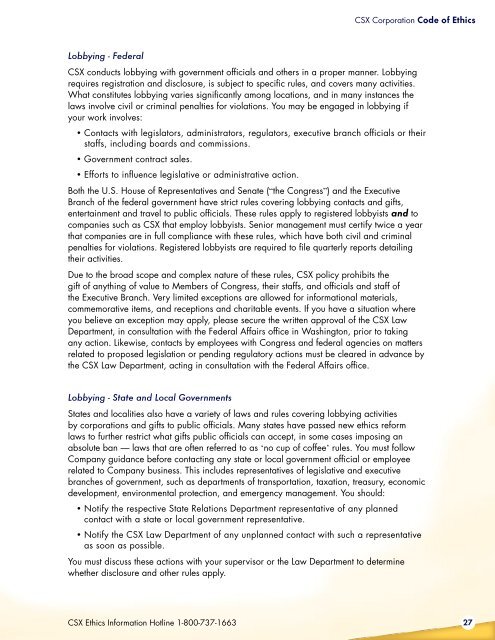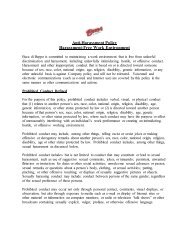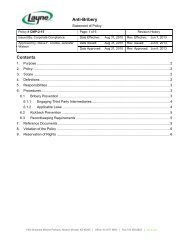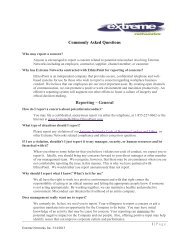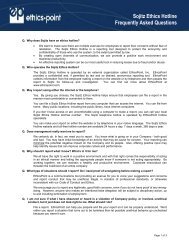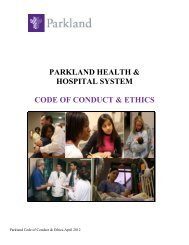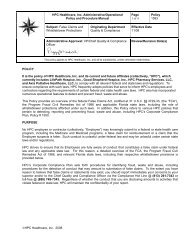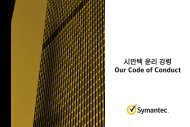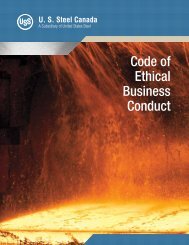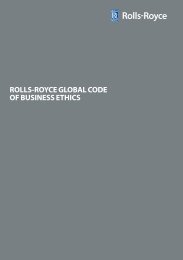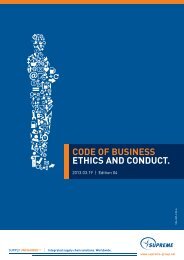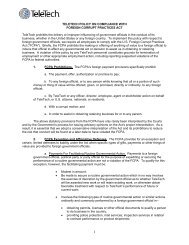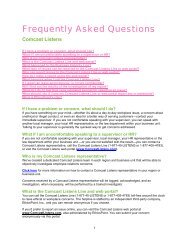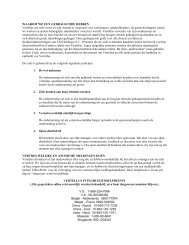Code of Ethics - EthicsPoint
Code of Ethics - EthicsPoint
Code of Ethics - EthicsPoint
- No tags were found...
You also want an ePaper? Increase the reach of your titles
YUMPU automatically turns print PDFs into web optimized ePapers that Google loves.
CSX Corporation <strong>Code</strong> <strong>of</strong> <strong>Ethics</strong>Lobbying - FederalCSX conducts lobbying with government <strong>of</strong>ficials and others in a proper manner. Lobbyingrequires registration and disclosure, is subject to specific rules, and covers many activities.What constitutes lobbying varies significantly among locations, and in many instances thelaws involve civil or criminal penalties for violations. You may be engaged in lobbying ifyour work involves:• Contacts with legislators, administrators, regulators, executive branch <strong>of</strong>ficials or theirstaffs, including boards and commissions.• Government contract sales.• Efforts to influence legislative or administrative action.Both the U.S. House <strong>of</strong> Representatives and Senate (“the Congress”) and the ExecutiveBranch <strong>of</strong> the federal government have strict rules covering lobbying contacts and gifts,entertainment and travel to public <strong>of</strong>ficials. These rules apply to registered lobbyists and tocompanies such as CSX that employ lobbyists. Senior management must certify twice a yearthat companies are in full compliance with these rules, which have both civil and criminalpenalties for violations. Registered lobbyists are required to file quarterly reports detailingtheir activities.Due to the broad scope and complex nature <strong>of</strong> these rules, CSX policy prohibits thegift <strong>of</strong> anything <strong>of</strong> value to Members <strong>of</strong> Congress, their staffs, and <strong>of</strong>ficials and staff <strong>of</strong>the Executive Branch. Very limited exceptions are allowed for informational materials,commemorative items, and receptions and charitable events. If you have a situation whereyou believe an exception may apply, please secure the written approval <strong>of</strong> the CSX LawDepartment, in consultation with the Federal Affairs <strong>of</strong>fice in Washington, prior to takingany action. Likewise, contacts by employees with Congress and federal agencies on mattersrelated to proposed legislation or pending regulatory actions must be cleared in advance bythe CSX Law Department, acting in consultation with the Federal Affairs <strong>of</strong>fice.Lobbying - State and Local GovernmentsStates and localities also have a variety <strong>of</strong> laws and rules covering lobbying activitiesby corporations and gifts to public <strong>of</strong>ficials. Many states have passed new ethics reformlaws to further restrict what gifts public <strong>of</strong>ficials can accept, in some cases imposing anabsolute ban — laws that are <strong>of</strong>ten referred to as ‘no cup <strong>of</strong> c<strong>of</strong>fee’ rules. You must followCompany guidance before contacting any state or local government <strong>of</strong>ficial or employeerelated to Company business. This includes representatives <strong>of</strong> legislative and executivebranches <strong>of</strong> government, such as departments <strong>of</strong> transportation, taxation, treasury, economicdevelopment, environmental protection, and emergency management. You should:• Notify the respective State Relations Department representative <strong>of</strong> any plannedcontact with a state or local government representative.• Notify the CSX Law Department <strong>of</strong> any unplanned contact with such a representativeas soon as possible.You must discuss these actions with your supervisor or the Law Department to determinewhether disclosure and other rules apply.CSX <strong>Ethics</strong> Information Hotline 1-800-737-166327


